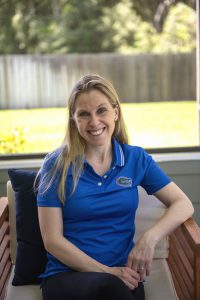 Today, we welcome Dr. Katherine Thompson-Witrick to the Discover FSHN Series! Dr. Thompson-Witrick is an assistant professor of food science in the Food Science and Human Nutrition Department at the University of Florida who researches how altering fermentation processes and packaging affects the flavors of beer, wine, and kombucha. In this feature, learn about her path to fermentation science, her thoughts on what the public should know about fermentation, and her earliest food-related memory.
Today, we welcome Dr. Katherine Thompson-Witrick to the Discover FSHN Series! Dr. Thompson-Witrick is an assistant professor of food science in the Food Science and Human Nutrition Department at the University of Florida who researches how altering fermentation processes and packaging affects the flavors of beer, wine, and kombucha. In this feature, learn about her path to fermentation science, her thoughts on what the public should know about fermentation, and her earliest food-related memory.
How did you become interested in fermentation science?
During my first year of college at the University of Georgia (UGA), I was in my kitchen looking over all these potential courses and found that the Food Science department not only offered a chocolate science but a fermentation science class as well. I was sold right then and there. Fortunately, I was extremely blessed to have an amazing advisor, Dr. Robert Shewfelt, who gave me the opportunity to work in his lab. Of all the projects I worked on, the wine project was the best. That project set me on my path to studying fermented beverages.
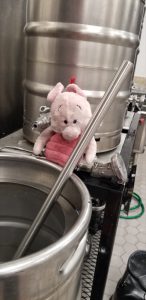
Tell me about your path to UF.
Never in my wildest dreams did I think I would end up at UF. I am a UGA girl through and through. I grew up in Athens, GA, and I knew I was always going to be a UGA Bulldog. When I was little, I remember going to UGA football and basketball games. After graduate school, I worked at SweetWater Brewing Company in Atlanta, GA. I learned a lot while working in the brewing industry; however, I enjoyed academia and research too much to stay there forever.
After working at SweetWater, I took a job at Southern Illinois University (SIU) as an assistant professor teaching fermentation science. I liked working at SIU, yet I wanted to move back to the southeast US. Being from Georgia and having family and friends in the southeast, I knew my heart wanted me to move back. So, when the position at UF opened, I immediately jumped on the chance. I have to say, it’s taken a while to get used to seeing all the blue and orange around me.
Would you share some of the recent projects you are working on?

I have several projects going on right now. The four big ones are (1) mixed fermentation, (2) the chemical and physical interactions between muscadine wine and its packaging, (3) growing hops in a controlled environment, and lastly (4) room temperature seeping impact on the chemical characteristics of kombucha.
(1) The mixed fermentation project is really close to my heart. I studied lambic beer for my PhD, which is a great example of mixed fermentation. While lambics are a mixture of several different types of yeast and bacteria, this project focuses on two different types of yeast. The project looks at what flavor compounds are produced during the mixed fermentation between ale and diastatic strains of yeast. It’s really interesting that you can see an increase in certain flavor compounds based on the increase in the pitch rate–how much yeast added to the unfermented wort–of the diastatic strain of yeast.
(2) We often forget about food packaging, especially when it comes to wine. While we are all familiar with wine being packaged in a multitude of materials (glass, tetra Pak®, bag-in-box (BIB), and polyethylene terephthalate (PET)) limited research has looked at the impact these different types of packages have on the chemical and physical characteristics of muscadine. Although the muscadine industry is somewhat small, these growers and producers are still interested in what happens after they place their wine in the package. Dr. Andrew MacIntosh and I currently have a grant with the Florida Grape Growers Association (FGGA) looking at the impact of packaging type (glass vs. aluminum) on the physical and chemical characteristics of muscadine wine.
Fermentation is not solely about making alcohol […] The fermentation process itself is one of the oldest preservation techniques, and without it, we wouldn’t have some of our favorite foods and beverages.
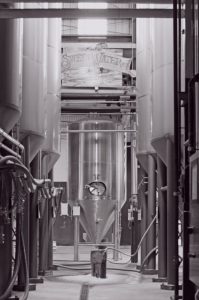
(3) Hops are a key ingredient in beer, as well as one of the most expensive for brewers. Hops are traditionally grown in the Pacific Northwest in the US; however, hops grown in the southwest could have a potential market in local beer. Yet Dr. Brian Pearson‘s research in UF’s Department of Environmental Horticulture suggests we could never grow hops like in the Pacific Northwest due to our shorter daylight period, which is ironic given we live in the “Sunshine State”. After looking through the literature, my lab came up with the idea to see if we could grow hops in a controlled environment in which we can dictate the amount of light we have. Dr. Pearson and I received a Specialty Block Crop Block Grant from the Florida Department of Agriculture and Consumer Services this past year and are starting this project now.
(4) Last but not least is my work on kombucha. Unfortunately, this work has somewhat stalled at the moment. I have been working on a project looking at the impact seeping time has on the chemical and physical properties of kombucha. Boiling water to seep tea can be expensive due to the amount of energy required to heat the water, so I’m trying to see if it’s possible to safely make kombucha by using room-temperature tea. I hope to continue my research on kombucha before too long.
What classes do you teach?
I teach Food Chemistry, Industrial Food Fermentation, and co-teach Food Processing with Dr. MacIntosh. Having the opportunity to teach a fermentation course again allows me to combine my industry experiences and my research in a teaching environment.
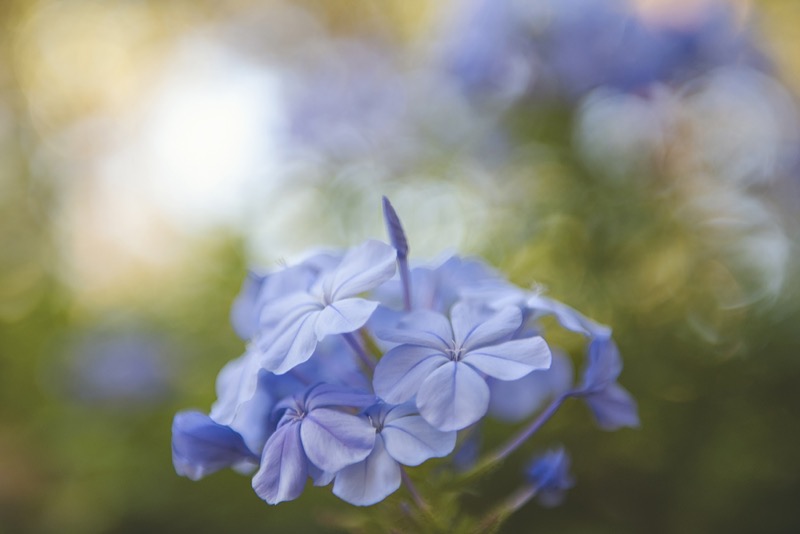
What do you believe the public should know about fermentation?
Fermentation is not solely about making alcohol, which is what most people attribute to the fermentation process. The fermentation process itself is one of the oldest preservation techniques, and without it, we wouldn’t have some of our favorite foods and beverages. Who doesn’t enjoy a good charcuterie board and a beer while watching soccer or hanging out with friends? Most of that board and likely the beer (or wine) is fermented.

What do you like to do in your free time?
On Saturday and Sunday mornings, you can find me watching the English Premier League (EPL). Back in graduate school, I used to get up and watch soccer with my cup of coffee. In fact, I grew up playing and refereeing soccer. I will openly admit I was watching the World Cup while at work this past December. Soccer is a family affair of sorts. My husband loves Manchester United, while I am a big Liverpool fan. Since our kids were born, I have been putting them in our respective jerseys. However, I always make sure the kids know which team to cheer for.

Along with watching soccer, my daughter loves Disney, so whenever we get a chance, we visit Disney World for the day. I love reading as well, but I don’t get to read as often as I would like. However, at the moment I can give you a pretty decent review on almost all of the Berenstain Bears books.
What is your earliest food-related memory?
I have to say it’s my grandmother’s baking. During Thanksgiving and Christmas, I always remember her having what seemed like fifty million desserts. I loved them all, especially her red velvet cake with cream cheese frosting. Those early memories are probably why red velvet cake is one of my favorite desserts and why I always bake during the holidays.
Interested in learning more about FSHN’s Food Science programs? Read more here and here and here!
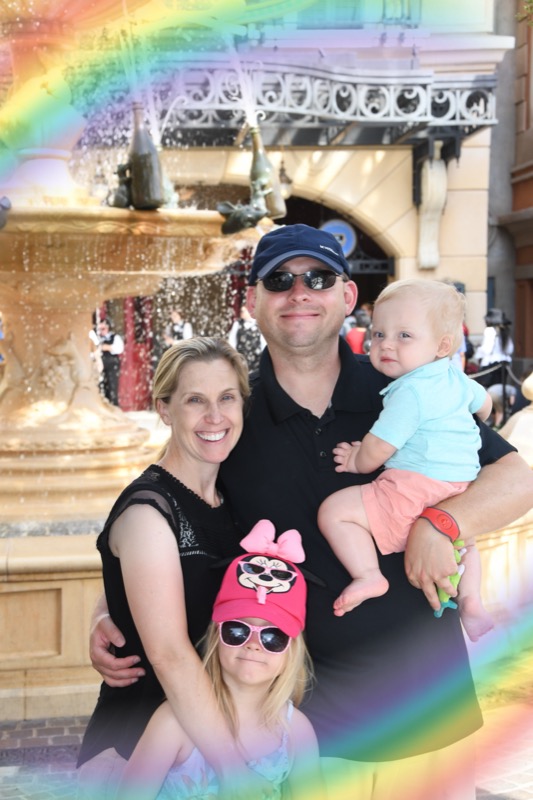
P.S. The Discover FSHN Series highlights the unique experiences of UF’s Food Science and Human Nutrition students, faculty, staff, and alumni. Want to read more about the amazing work going on in the FSHN department? See our previous features below (click on arrows to expand):
Undergraduate Students:
Shannon Mai, Dietetics
Alex Colon, Dietetics and Jenny Duong, Food Science
Jackie Shannon, Nutritional Sciences
Jennifer Jordan, Food Science
Lily Tucciarone, Dietetics
Tim Cassella, Nutritional Sciences
Graduate Students:
Savanna Curtis, Food Science (M.S.)
Carley Rusch and Matthew Beke, Nutritional Sciences (Ph.D.)
Alexa Hosey, Dietetics (MS/DI)
Vicnie Leandre, Food Science (M.S.)
Rufus Theophilus, Nutritional Sciences (Ph.D.)
Amber Fritsche, Dietetics (MS/DI)
Amy Jones, Food Science (Ph.D.)
Melissa Perez Santana, Food Science (M.S.)
Postdoctoral Associates:
Dr. Cameron Bardsley, Food Safety
Dr. Tautvydas Shuipys, Food Safety
Dr. Felix Jimenez Rondan, Nutritional Sciences
Faculty:
Dr. Naim Montazeri, Food Science/Food Virology
Dr. Jeanette Andrade, Dietetics
Dr. Zhiyong Cheng, Nutritional Sciences
Dr. Juan Andrade Laborde, Global Nutrition
Dr. Razieh Farzad, Food Science
Dr. Beth Gankofskie, Dietetics
Dr. Anne Mathews, Nutritional Sciences
Dr. Diana Taft, Nutritional Sciences
Dr. Boce Zhang, Food Science/Food Microbiology
Dr. Cora Best, Nutritional Sciences
Staff:
Sharyn Passeretti, Lab Specialist
Herschel Johnson, Manager of Student Services
Brandy Johnson, Administrative Assistant
Kohrine Counts Hazim, Dietetics Program Coordinator
Alumni:
Dr. Rebecca Gould, Dietetics, Postdoctoral Research
Dr. Becca Solch, Nutritional Sciences, Postdoctoral Research
Hannah Cooper, Dietetics, Private Practice
Dr. Richie Li, Food Science, Product Development
Doctor Brian Barrow, Nutritional Sciences, Medicine/Physician
Luciano Junoy, Food Science, Product Development
Carlin Dixon, Dietetics and Professional Dance
P.P.S. Learn more about FSHN’s renowned programs below!
Undergraduate Programs:
Dietetics
Food Science
Nutritional Sciences
Graduate Programs:
M.S. Dietetic Internship Program
M.S. Food Science and Human Nutrition
Ph.D. Food Science
Ph.D. Nutritional Sciences
 5
5
